Behind the Doors
Abstract
Pregnancy. Instantly, pictures flash across our minds: baby showers, gender reveals, celebrations, and joy. We hear the initial excited screams of delight, the cries, and of course, the baby’s first laughs.
But what happens to the pregnancies that aren’t filled with these images or sounds? What happens to these stories? Where do they go?
They stay behind the doors.
The normalization of the path to motherhood has paved the way for the oversimplification of the varieties of experiences in pregnancy. When narratives of motherhood do not fit into such norms and expectations, they become both socially and medically deemed “unconventional”. It is particularly at the intersection of both social and medical deviations from the norm where patients quietly fall through the cracks, into the dark blind spots within our healthcare system.
In this piece, I want to upset the normative expectations of pregnancy, shining light and lifting the voices of women whose experiences have often been made invisible. Through a deep exploration of maternity blogs and research journals, I gathered common themes and threads from various experiences and perspectives and transformed them into narratives weaved into the patient rooms of a hospital. My choice for this exhibit to be placed in the settings of a hospital ward was intentional, aimed at representing the overlap of social “unconventions” of pregnancy with its medical “unconventions”.
By walking you down the hospital wing, in and out of each patient room, I aim to increase awareness of four underacknolwedged maternal narratives: teen pregnancy, subsequent pregnancy, pregnancy during COVID-19, and infertility. I chose to tell each story adapted to its own narrative form, to best express the emotions and conditions attached to each unique experience and perspective. In the end, I aim to advocate for a form of maternal care that is individually tailored to each woman’s experience.
Pregnancy behind the doors. Time to open it.
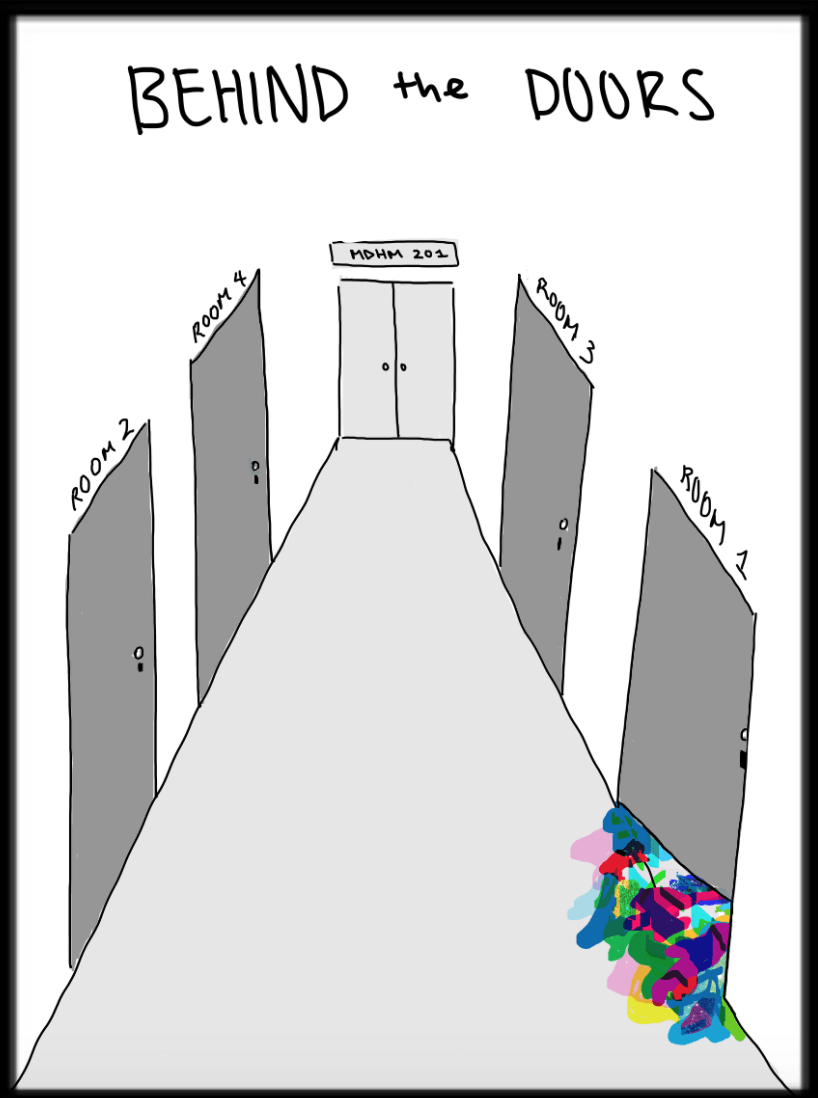
Room 1: The Backpack
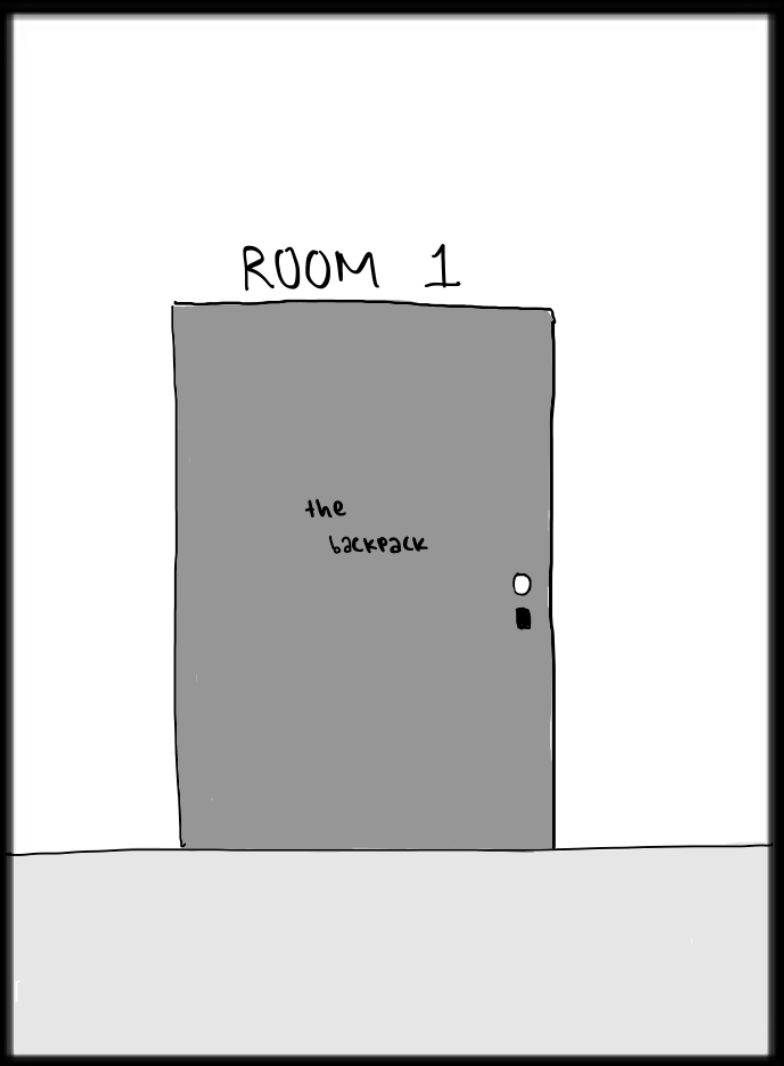
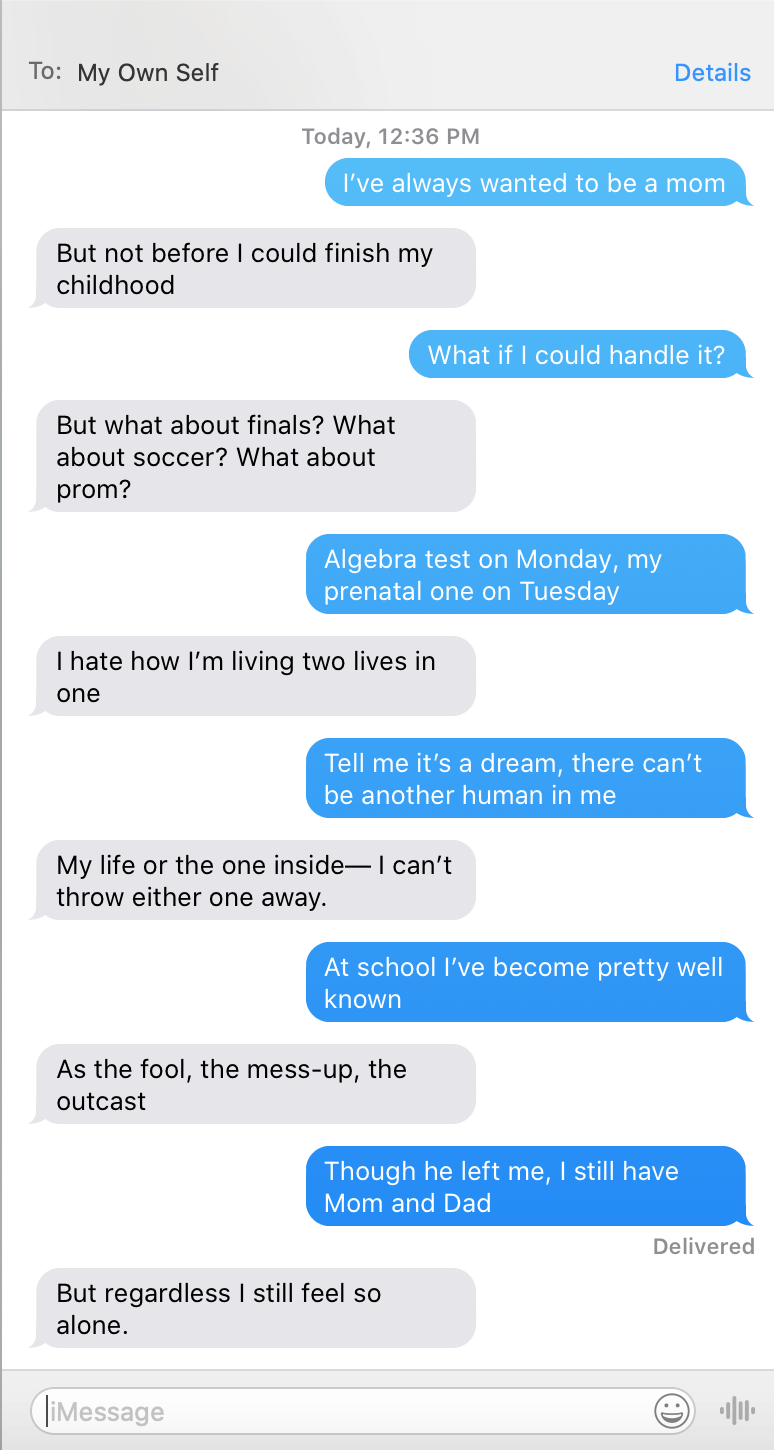
Room 2: The Silence
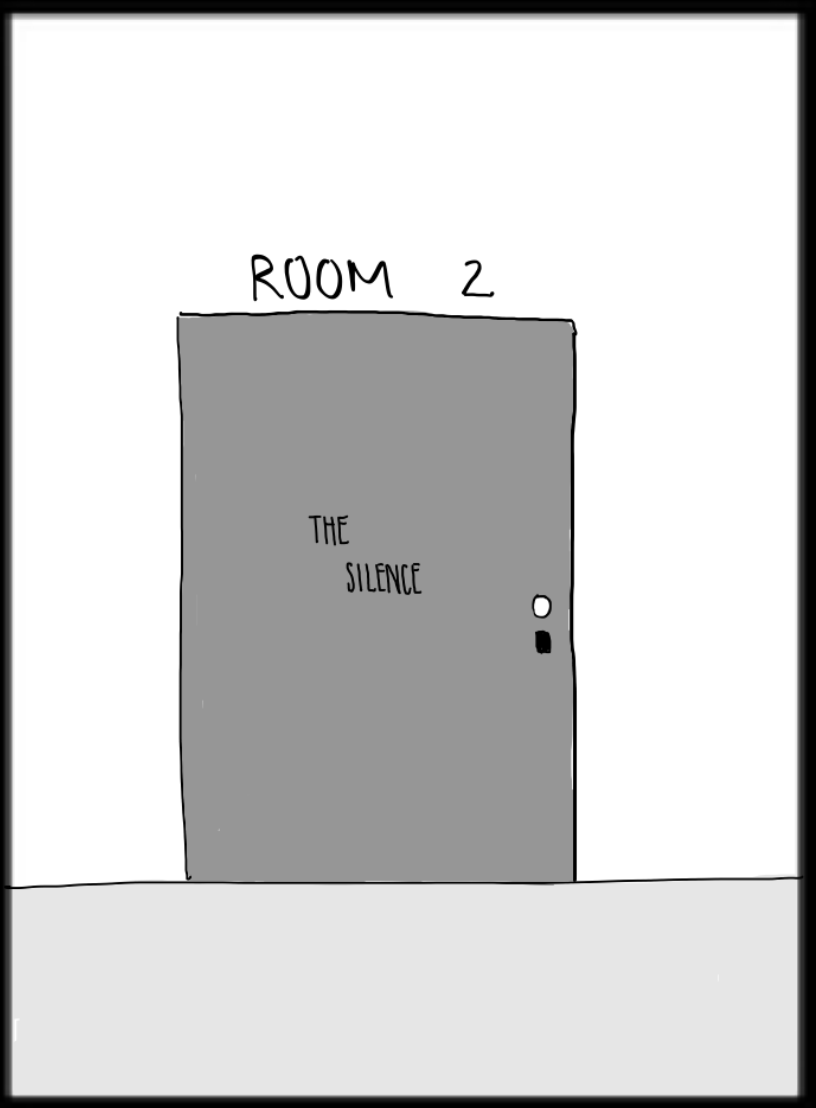
Miscarriage.
Some told me it was
a spontaneous abortion.
Others said–it’s common.
Then why do I still feel
a screaming sense of loss?
How can birth and life and death
all exist in my body simultaneously?
I hate my body for what feels like betrayal.
I had waited so long to hear my baby’s heartbeat.
But what had I done wrong? Was it a curse? Why me?
Miscarriage. Misplaced. Mistrust. Mistreated. Mistaken.
Mis- means wrong. So I must be doing something wrong.
But here I am. Again. Pregnant. Again. A second chance?
Test one. Positive. Test two. Positive. Test three. Positive.
But silence. Fear keeps my lips sealed, mouth shut.
I can’t tell anyone yet. I can’t get my hopes up.
So it’s different this time. No celebration.
No baby showers. No gender reveals.
Because I will always ask myself
what if I fail again?
Room 3: The Ventilator
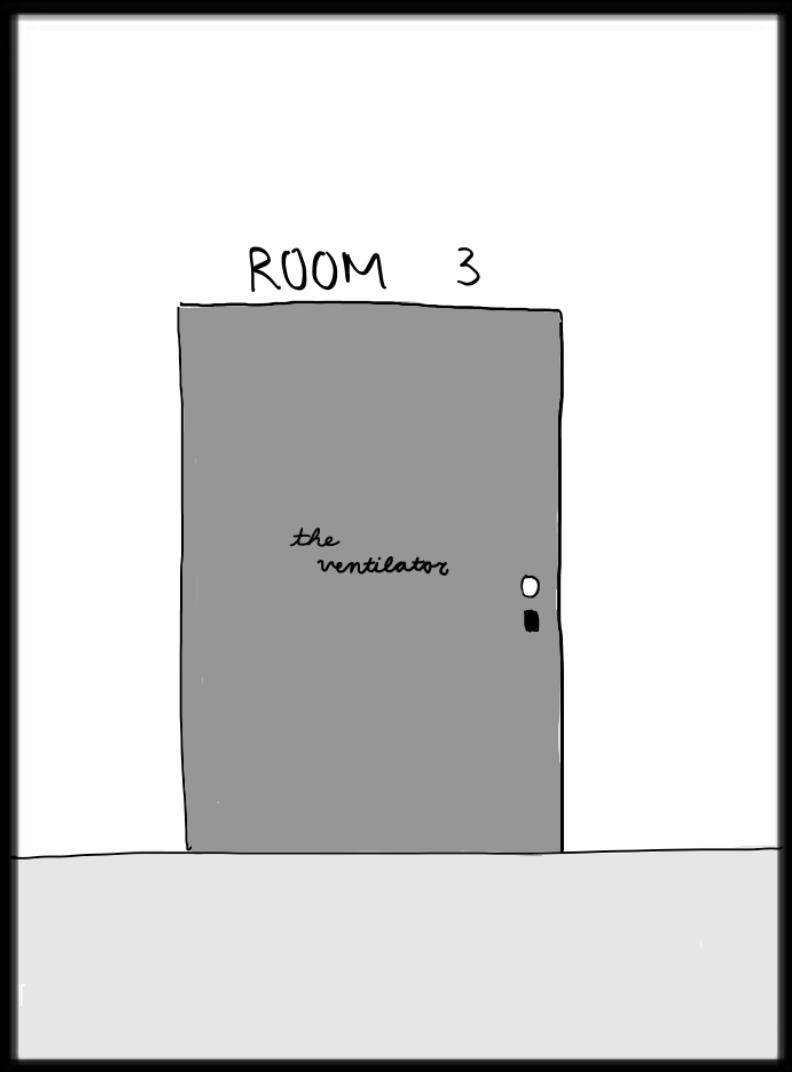
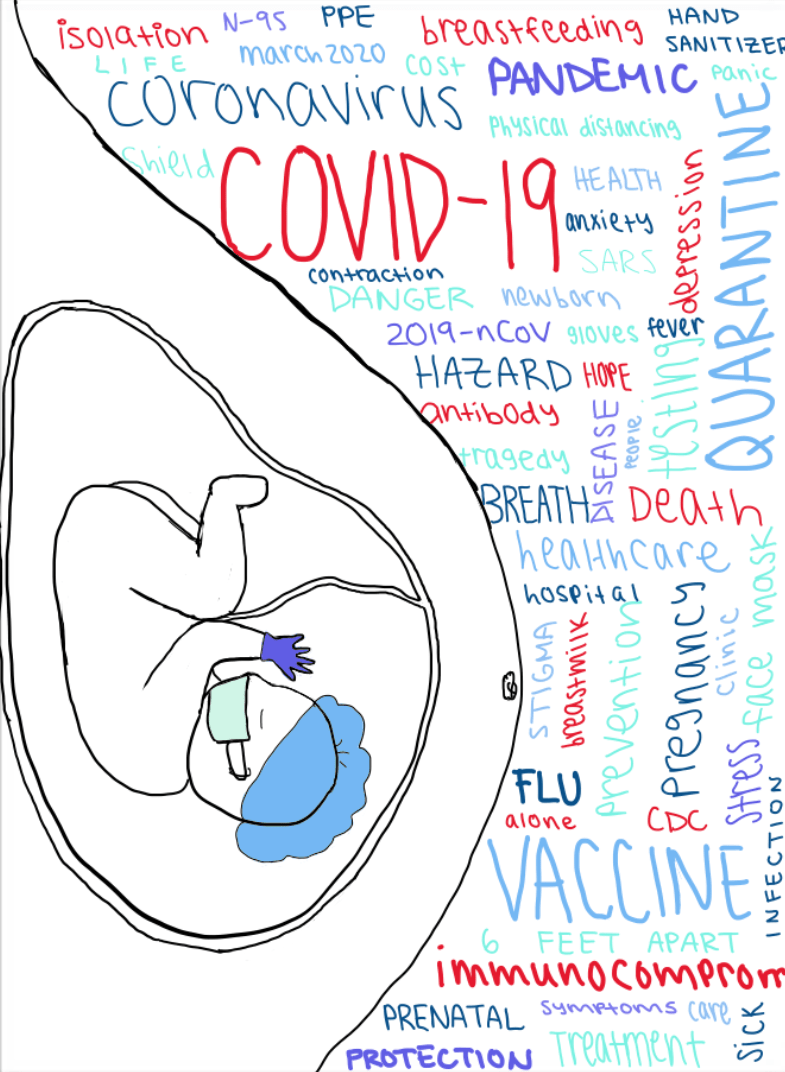
Room 4: The Shadow
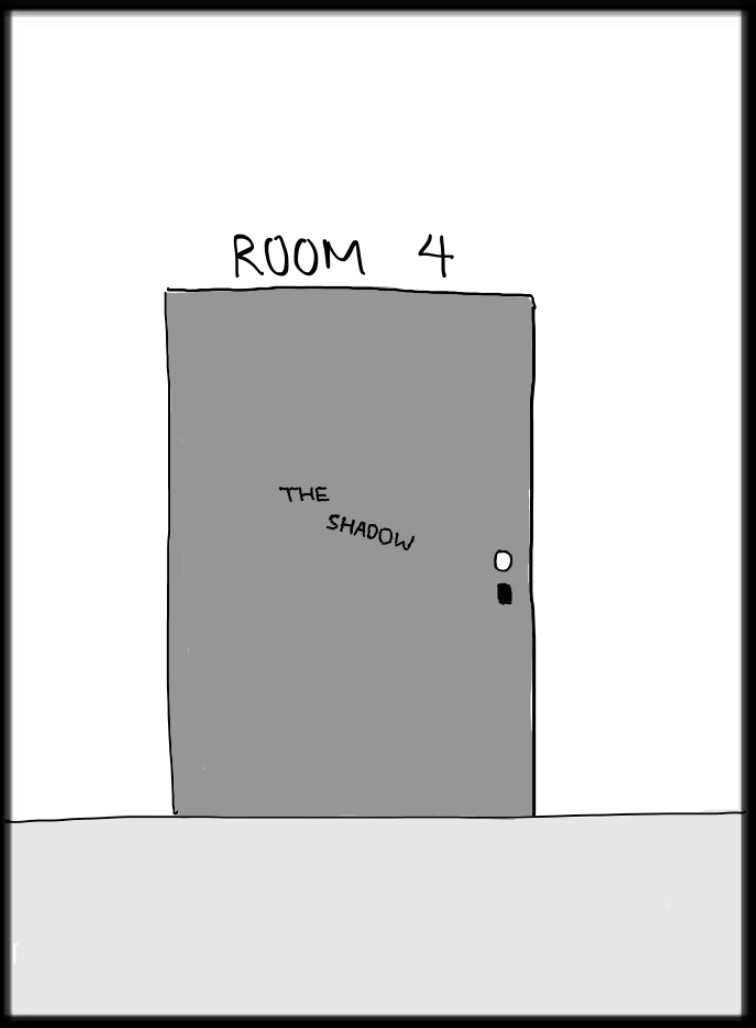
December 4, 2018 6:56 PM
I heard the baby’s first cry.
The immense amount of joy I felt was immediately countered with an equal, if not, more powerful wave of sadness.
Watching my sister holding her future in her hands, I couldn’t help but feel happy for her. There was so much in store for her and her new family, and I knew she had wanted this for years.
I so badly wanted that too. But rubbing my stomach, I knew there would always be that empty stillness in my body where I had hoped one day a baby might be. A place where life should have been–but could not and would not ever be. What had gone wrong?
There’s a delicate balance and time frame between when the stigma of teen pregnancy ends and when the one surrounding infertility begins. Between these two time points, there’s a sudden new era where every conversation around you is on when you’ll be having children.
As a teenager, I was showered with lessons about safe sex, abstinence, and the looming message that said it was okay to postpone childbearing. Teenage pregnancy was so looked down upon that it never once came up in conversation with my parents, and I just knew that my priorities were in my education and my career first.
Despite all the sex ed, no one taught me that a woman’s fertility begin to rapidly decline after age 35. Pop culture and media showing stories of older celebrities getting pregnant showed me that if Gwen Stefani or Mariah Carey could conceive in their 40s, I surely could too. So, my husband and I remained focused in growing our relationship and making a good living, to create the best life to welcome our child into.
But nature does not work on our time clock. Through the dozens of infertility appointments, negative pregnancy tests, and unwanted periods, we’ve come to face the hard truth: by the time we were both ready, my body no longer was. There’s so much that we should have done and could have done, but sometimes the biggest things in life are just out of our control.
So as of now, I stand in the corner of the delivery room, watching through my mixed tears of joy and sadness as my sister begins the life I’ve always wanted. I can only imagine how it must feel.
References
Carolan, Mary, and Ellen Hodnett. 2007. “‘With Woman’ Philosophy: Examining the Evidence, Answering the Questions.” Nursing Inquiry 14 (2): 140–52. https://doi.org/10.1111/j.1440-1800.2007.00360.x.
Carson, Anna, Cathy Chabot, Devon Greyson, Kate Shannon, Putu Duff, and Jean Shoveller. 2017. “A Narrative Analysis of the Birth Stories of Early-Age Mothers.” Sociology of Health & Illness 39 (6): 816–31. https://doi.org/10.1111/1467-9566.12518.
Friedrich. 2020. “I’m Bringing A Baby Into The World In the Middle Of A Pandemic.” WBEZ Chicago. May 13, 2020. https://www.wbez.org/stories/im-bringing-a-baby-into-the-world-in-the-middle-of-a-pandemic/2dd9c33f-79cf-4ceb-ac97-90a0f72b2a90.
Garbes, Angela. 2016. “What I Gained from Having a Miscarriage.” The Stranger. April 27, 2016. https://www.thestranger.com/features/2016/04/27/24011632/what-i-gained-from-having-a-miscarriage.
Machado, Carmen. 2019. “Carmen Maria Machado, In the Dream House.” Dropbox. 2019. https://www.dropbox.com/sh/xzquyb0p9grm867/AABLo0dwGdx1vTU0RsHV_HuCa?dl=0.
McKinley. 2011. “I Expected to Hear the Baby’s Heartbeat.” Our Bodies Ourselves (blog). October 15, 2011. https://www.ourbodiesourselves.org/stories/i-expected-to-hear-the-babys-heartbeat/.
Nichols, Tracy R., Margaret Brown, Sheryl L. Coley, Allyson Kelley, and Kelly Mauceri. 2014. “‘I Managed It Pretty Good’: Birth Narratives of Adolescent Mothers.” The Journal of Perinatal Education 23 (2): 79–88. https://doi.org/10.1891/1058-1243.23.2.79.
Nuila, Ricardo. 2016. “I Am A Rock.” Guernica. June 1, 2016. https://www.guernicamag.com/i-am-a-rock/.
O’Grady. 2011. “Nature Does Not Work on Our Time Clock.” Our Bodies Ourselves (blog). October 15, 2011. https://www.ourbodiesourselves.org/stories/nature-does-not-work-on-our-time-clock/.
“The Reprieve.” 2020. This American Life. June 19, 2020. https://www.thisamericanlife.org/709/the-reprieve.
Zoll. 2013. “Learning the Hard Way That Science Has Not Outsmarted Mother Nature.” Our Bodies Ourselves (blog). June 26, 2013. https://www.ourbodiesourselves.org/stories/learning-the-hard-way-that-science-has-not-outsmarted-mother-nature/.